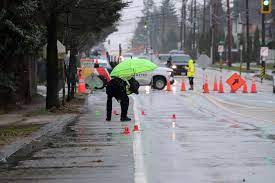By Zile Singh
“Loyalty to the Motherland is worth more than money.”
Pravasi Bharatiya Divas (PBD) or the Non-Resident Indians Day is celebrated on January 9 every year by the Republic of India and her Missions Abroad to mark the contribution of the overseas Indian community (Diaspora) towards the development of India and their achievements in the countries of their new residence. It also provides a platform to the overseas Indian community to engage with the government and people of the land of their ancestors for mutually beneficial activities. Individuals of exceptional merit are honoured with the prestigious Pravasi Bharatiya Samman Award. The day commemorates the return of Mahatma Gandhi from South Africa to Mumbai on January 9, 1915.The Government of India decided for the first time in 2003 to celebrate Pravasi Bharatiya Divas (Non-Resident Indians Day) from January 7-9 every year to recognize the contribution of Mahatma Gandhi as well as the Non-Resident Indians for earning a good name for India. In 2015, Government of India decided to celebrate the Day on a biennial, instead of on annual basis. This year

The Indian Consulate, Vancouver celebrated the Day by organizing a virtual conference on the theme “Strengthening Indo-Canadian Relationship: Role of Diaspora Leaders” on January 10. The participants were: Raj Chouhan, Speaker, BC Legislative Assembly; Ranj Pillai, Minister, Yukon; Prasad Panda, Minister, Alberta; Randeep Sarai, MP, BC; Jinny Sims, MLA BC and Gary Grewal, MLA, Saskatchewan. In his opening remarks the Consul General highlighted the importance and the role of Diaspora in developing strong ties between India and Canada. This year’s PBD has an immense significance as it has coincided with 75th Anniversary of “Azadi Ka Amrit Mahotsav”.All the Speakers briefed about their personal as well as the respective provincial governments and the federal government’s keenness to upgrade their efforts to collaborate for mutual benefits in every possible field. An important aspect touched upon was that more inter-parliamentary discussions be held to learn from each other to strengthen the democratic institutions for the benefit of the common man. The discussion ended on a happy note that there is an immense potential to enhance Indo-Canadian economic and trade relations in the near future. One Speaker, of course in a low tone, mentioned about bureaucratic barriers also.
Leaving aside the migration of Indians as indentured labourers in different countries over the globe,the voluntary migration from India startedsometimes in the late 19tth century. In addition to the African and European Continents, the North American continent also remained a major attraction for Indians to migrate. In the Indo-Canadian context, there is a long history of this treacherous journey of migration from the banks of Ganga, Yamuna, Sutlej, Krishna, Kavery (Cauvery) and Godavari to the banks of Fraser (BC) and the Don and Humber rivers (Ontario) in Canada.
Canada has a history of peaceful co-existence and progressive ideology of international peace and cooperation. According to the Global Peace Index 2021, the ranking of Canada is 6th.Iceland, New Zealand, Austria, Portugal and Denmark are on the top. Similarly, India’s claim to be an ancient peace-loving country having given several proponents of non-violence and peace -loving personalities like Gandhi, the Buddha and Mahavira deserves recognition.
Canada, as a multicultural country and an upholder of a high standard of democracy and human rights, gave equal opportunities to the Indian immigrants to flourish by dint of their honest and hard work. Initially the immigrants faced the scourge of racism. However, time is the great healer. With a relentless struggle, the Indian Diaspora carved out a niche in Canadian society in almost all walks of life, whether it is politics, business, language, entertainment, media, charity, fundraising, blood donation and volunteerism. These achievements have certainly made Canada as well as India proud of these immigrants. What anexcellent example that the Prime Minister of Canada could genuinely boasted once of having more Members of Parliament and Cabinet Ministers of Indian originof a particular communitythan the Indian Parliament and the Indian Cabinet have. So far, the following Indo-Canadians have been awarded the PBD Samman: Vasdev Chanchlani, Ms. Lata Pada, Dave S. Hayer and Ujjal Dosanjh.
On this occasion when we are celebrating this auspicious day and highlighting our successes, it is our duty to introspect our shortcomings as well. For several years the involvement of some members of the Indo-Canadiancommunity in various unlawful incidents is a matter of concern. This needs an attention. About two years back, one of the Punjabi intellectuals, in the penultimate paragraph of his column in The Link newspaper has penned down his pain as follows: “The worst thing is that many, who come from decent families, are taking a life of crime such as joining gangs, becoming drug pushers, engaging in human trafficking and becoming prostitutes. This is seen more in Canada which is the biggest destination for the Punjabi youth.” Of late, a societal divide between two prominent communities is on the rise.
India, as a mother country, expects her sons and daughters to take with them a good legacy instead of a bad one. The notion that “India is the home of a lost cause as far as the Sikhs are concerned” has to be wiped out from the minds of the pseudo-activists sitting outside. Every Non-Resident Indian, irrespective of his region and religionis apermanent Ambassador of India. His good deed brings fame and an undesirable deed, a bad name to India.
PBD and Mahatma Gandhi are synonyms. “Every life is a journey, regardless of whether you stay in one place, live like a global nomad, or end up being something in between.” -Ranjani Rao.
Zile Singh is a well respected Columnist, Writer and a Vipassana Meditater. He has a Post-Graduate Diploma in Human Rights. He can be reached at zsnirwal@yahoo.ca
















11 Comments
Cole Naslund
5 months agohello there and thanks for your information – I have certainly picked up something new from right here. I did on the other hand experience some technical issues using this web site, since I experienced to reload the website many times prior to I could get it to load correctly. I have been thinking about if your web hosting is OK? Now not that I am complaining, but slow loading instances times will sometimes impact your placement in google and could injury your high quality ranking if ads and ***********|advertising|advertising|advertising and *********** with Adwords. Well I’m including this RSS to my email and can look out for a lot more of your respective intriguing content. Ensure that you update this again soon..
situs judi bola
3 months agoHi there! This post couldn’t be written any better! Reading through this post reminds me of my previous room mate! He always kept talking about this. I will forward this article to him. Pretty sure he will have a good read. Thank you for sharing!
Kliknij tutaj
2 months agoImpressive write-up
fdertol mrtokev
2 months agoDo you mind if I quote a few of your articles as long as I provide credit and sources back to your blog? My blog site is in the very same area of interest as yours and my users would definitely benefit from a lot of the information you provide here. Please let me know if this okay with you. Thank you!
Frumzi Casino Testbericht
2 months agoDer Ansturm der Völkerwanderung bereitete der gallorömischen Kultur im Saarland ein jähes Ende.
Zur Erhöhung der Sicherheit wurden an der Saar Kastelle in Merzig (Martiaticum), Saarbrücken und Pachten errichtet, doch
währte diese späte Blütezeit nur noch kurz. Missernten, Aufstände und Barbareneinfälle, die Aufgabe
des Limes zwischen Rhein und Donau brachten der Region einen spürbaren Niedergang.
Die Zeit der ungebrochenen Prosperität der gallorömischen Kultur im Saarland endete
mit der Krisenzeit des dritten nachchristlichen Jahrhunderts.
Anhand des beim Abbruch der alten Pachtener Kirche im Jahr 1891 gefundenen „Ursussteines“ mit einem Christusmonogramm ☧ lässt sich belegen, dass bereits im dritten beziehungsweise vierten Jahrhundert
n. Im Jahr 380 war der Bereich des heutigen Saarlandes christianisiert.
Eine weitere Maßnahme der Landesregierung war die Verbesserung der Infrastruktur.
Diese Reformen führten zu jahrelangen Streitigkeiten, Identifikationsproblemen und politischen sowie juristischen Machtkämpfen. Damit sollte
der wirtschaftliche Strukturwandel verwaltungsmäßig unterstützt
werden.
References:
https://online-spielhallen.de/online-casino-bonus-november-2025-top-angebote/
Best Macau casino resorts
2 months agoOur exclusive VIP programme offers benefits that increase based on your playing activity.
The welcome package is designed to enhance
the first deposit experience, while weekly promotions ensure regular incentives remain available.
Mate Casino has become a popular choice for online gaming enthusiasts, thanks to its wide scope of features and services.
Additionally, certain titles may contribute diversity towards fulfilling these requirements, and time limits
often apply to bonus usage. These conditions typically include wager,
which specify how many times the bonus amount must be wagered before any winnings can be
withdrawn. All perks and advancements offered by Casino-Mate mobile are subject to specific rules and regulations to ensure fair play and transparency.
This is a real money casino which also offers free games for those who want
to trial titles before placing real money wagers, or simply like to play on a recreational level.
You’ll find a huge range of real money pokies, classic table games like blackjack and roulette,
live dealer options, jackpots, and more. With a laid-back vibe, fast payouts, and a platform that actually works
smoothly on both desktop and mobile – this is where Aussies come to
play.Stick around as we dive into everything Mate has to offer – from bonuses and
pokies to banking and support. Those who prefer to play their online casino games on-the-go will also be thrilled to
know that Casino Mate online casino is fully optimized to be
used on any mobile device that operates Android, iOS,
or Windows formats. Casino Mate online casino offers multiple safe and
easy-to-use banking options for their players. These comprehensive benefits combine to create a
gaming platform that truly understands and addresses the needs of modern online casino players.
This category includes such games as blackjack, roulette, poker,
and some other variations. There is also a search bar where you
can enter the game’s name to play it. The games may be ranged in alphabetical order
or according to the provider. You don’t need any
skills neither previous experience to play them. The rising demand for pokies is due to the simplicity of this game.
References:
https://blackcoin.co/new-online-casinos-australia-2025-guide/
Wild Fortune Online Casino
2 months agoGentle nudges help you stay on top of everything.
Start a Chat, jump into a video call with Meet, or collaborate in a Doc, all right from
Gmail. Gmail blocks 99.9% of spam, malware, and dangerous links from ever reaching
your inbox. Gmail uses industry-leading encryption for all messages you receive
and send. Gemini in Gmail can compose well-written drafts or replies for you to edit, personalize and quickly hit send.
Learn how to sign in on a device that’s not yours.
With Google Workspace, you get increased storage, professional email addresses, and additional features.
To sign up for Gmail, create a Google Account. Not a big deal, I’m
sure anyone interested in learning the difference
between these cables/ports can easily figure out what you meant to say.
Find out more about securely signing in.
Use Gemini with your Google AI Pro or Ultra plan for
personal use or as part of your Google Workspace plan for work.
Save time managing your inbox at home or on the go with Gemini.
Once you’re signed in, open your inbox to check your mail.
You may opt out at any time. Join our newsletter
to receive the latest news, trends, and features straight
to your inbox!
References:
https://blackcoin.co/dunder-bonus-best-offer-for-2025/
woodwell.co.kr
2 months agoonline casino usa paypal
References:
woodwell.co.kr
cloudwapi.site
2 months agoonline casino with paypal
References:
https://cloudwapi.site/emiliahoehne65
zabornatorilon
3 weeks agoWhat i don’t realize is if truth be told how you’re not really much more smartly-appreciated than you may be now. You’re so intelligent. You know therefore significantly relating to this subject, produced me in my view consider it from a lot of numerous angles. Its like women and men aren’t interested unless it?¦s one thing to do with Lady gaga! Your own stuffs great. Always deal with it up!
tlovertonet
2 weeks agoHello just wanted to give you a quick heads up. The text in your content seem to be running off the screen in Internet explorer. I’m not sure if this is a formatting issue or something to do with web browser compatibility but I figured I’d post to let you know. The style and design look great though! Hope you get the issue resolved soon. Many thanks